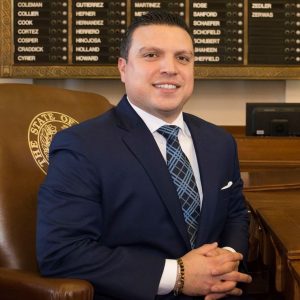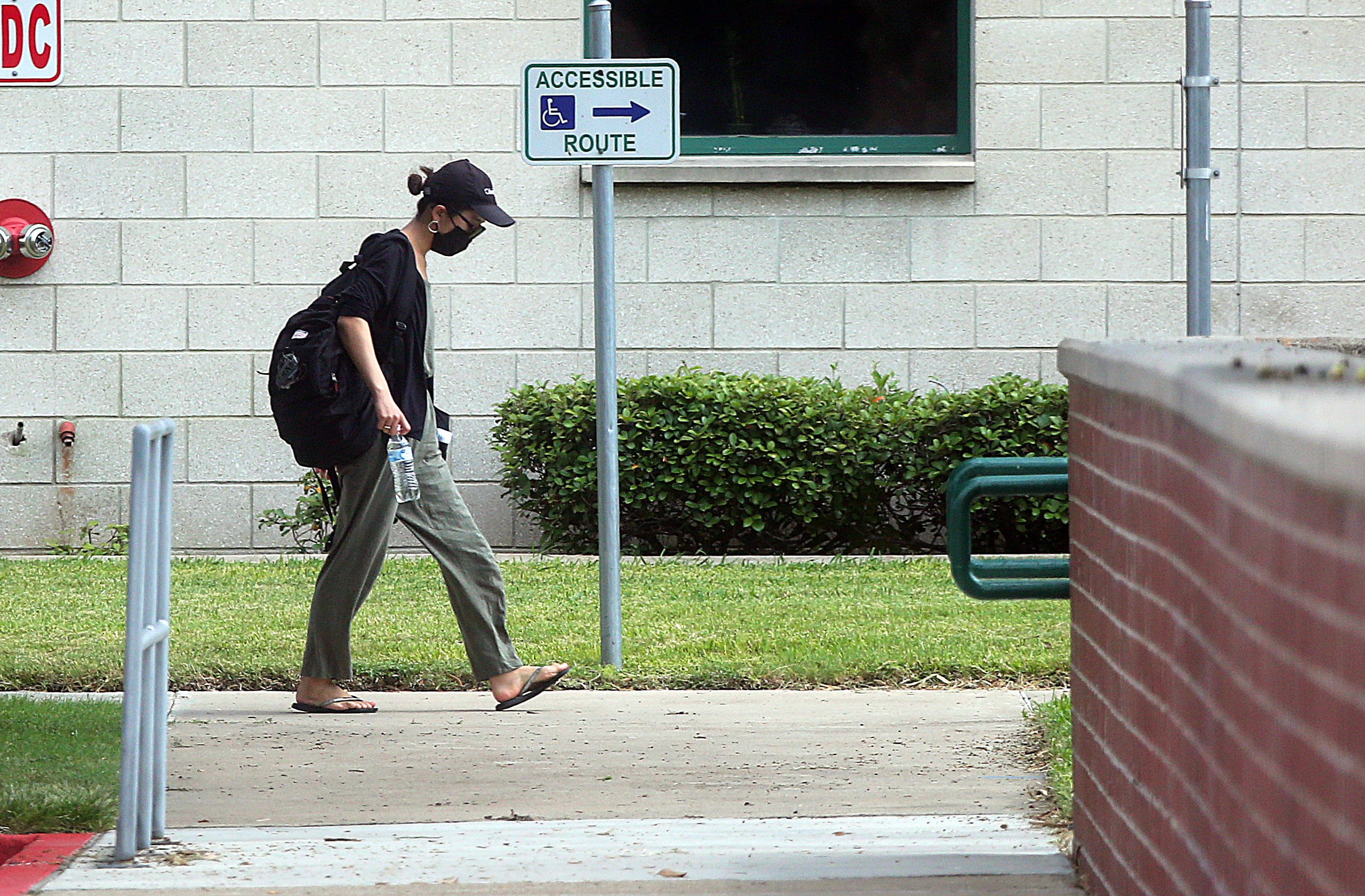 State Rep. Sergio Muñoz (Courtesy: State Representative Sergio Muñoz, Jr./Facebook)
State Rep. Sergio Muñoz (Courtesy: State Representative Sergio Muñoz, Jr./Facebook)State Rep. Sergio Muñoz Jr. is trying again.
The lawmaker has filed two bills that could potentially impact the way South Texas College functions financially, as well as force its trustees to run for elected office more frequently.
HB 4979 would affect the institution’s tax rate by lowering the threshold percentage to trigger a voter election, while HB 4930 would change the term lengths for STC’s governing board from six years to two years. The college, meanwhile, has declined to speak on the proposed legislation.
Muñoz, D-Palmview, had previously filed the same bills under HB 3120 and HB 1816 back in 2023 during the 88th Legislature, with the former reported out of the House Committee on Ways & Means but didn’t reach the third stage for the Texas House to vote on.
He said Tuesday that the reason for filing the bills again is in acknowledgment of community concerns over property taxes.
“We’re just trying to work on behalf of the concerns brought to us by our constituents,” Muñoz said.
STC was established as a taxing district on Aug. 12, 1995. But Muñoz said the understanding at the time was that this was only temporary.
“In terms of the tax, they’ve always asked, ‘Well, should we have at least an opportunity to vote on that or to ratify it,’ because they feel like they don’t have an ability to do so,” he added.
Since community colleges in Texas are considered special taxing units, STC has the ability to raise the voter-approval tax rate for increased operating expenses by up to 8% annually without the public’s vote.
Muñoz also said it was his understanding that Hidalgo County taxpayers generate about $60 million a year for STC, which also taxes Starr County residents.
When asked if 2023’s figures will be used in the 2025 version of the bill — decreasing the 8% to 3.5% — he said definitely, but that “it’s always very fluid.”
“What we’re trying to work on is that at the very least it’d be brought to the voters for them to decide whether they want to continue to pay it or not,” Muñoz said.
 A student is seen walking at South Texas College Pecan Campus on Wednesday, June 23, 2021, in McAllen. (Joel Martinez | jmartinez@themonitor.com)
A student is seen walking at South Texas College Pecan Campus on Wednesday, June 23, 2021, in McAllen. (Joel Martinez | jmartinez@themonitor.com)As for the term lengths, Muñoz was more direct. He asked, “What’s the justification for having a six-year term?”
To his knowledge, according to Muñoz, the only other position with the same term length is that of a U.S. senator while other positions are either a two- or four-year term, which is why he wants to bring parity.
“It was our understanding that the six-year term — what was proposed when it was created to get this issue going forward — was not something that was gonna stay in existence even to the present time,” he said.
As in 2023, STC declined to comment this week on the bills.
“Thanks for your inquiry but STC doesn’t comment on pending legislation,” STC Executive Director of Public Relations and Marketing Lynda Lopez said via text Wednesday.
Additionally, when asked if the college had any comment on Muñoz filing the bills again as a result of constituent concerns, Lopez simply responded with, “No.”
As of April 3, both of the bills have been referred to committees. If approved, HB 4930 would go into effect this September while HB 4979 would take effect Jan. 1, 2026.
The post ‘Constituent concerns’ reignite lawmaker’s attempt to reduce STC term lengths, taxing appeared first on MyRGV.com.
 (2).png)





 English (US)
English (US)